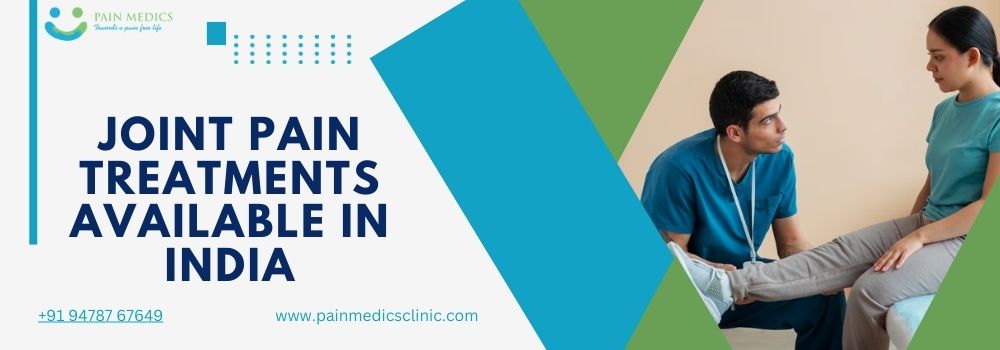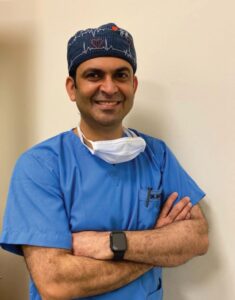Joint Pain Treatments Available in India- Joint pain is one of the critical issues that plague people in India especially older adults as well as those indulging in active lifestyles. From taking over-the-counter medications to more sophisticated therapeutic treatment, a variety of treatment options are available to help manage the problem. The following are the ten most effective Joint Pain Treatments Available in India.
Top 10 Joint Pain Treatments Available in India
We have mentioned the top 10 Joint Pain Treatments Available in India. These treatments are very much effective and provide relief from joint pain in a short time. Let’s begin with the topic.
1. Pain Relief Gels and Creams
Topical pain relief products, like gels or creams, are among the fastest Joint Pain Treatments Available in India. Such gels usually contain active ingredients like diclofenac, menthol, and methyl salicylate. They only provide short-term relief from the pain. the basic idea of using pain relieving creams and gels comes from the principle of the counter-irritation mechanism where one sensation over powers the sensation of pain.
Volini Gel: This is a pretty popular gel because it is not greasy and is also well-received in cases involving mild to moderate pain which often abates within 15-30 minutes of using this. The users find it easy to apply and very comfortable to use; less pleasant users, however, feel tingling because of menthol. It has to be gently applied and does not require to be rubbed into the skin.
Moov Pain Relief Cream: Known for its herbal fragrance and cooling properties, it works on the very basic principle of combining diclofenac with wintergreen and eucalyptus oil to provide desirable pain relief to the individual. A quick fix for muscle strains, joint pains, and backaches- it acts almost instantaneously after application.
Relispray: This pain-relieving spray is now popular for the reason that it is very handy, making carrying it a good idea for patients who suffer from sudden pain episodes. Methyl salicylate and menthol are active ingredients that help in relieving joint pains caused by arthritis and some sports injuries.
2. Oral medications
Oral drugs such as Nonsteroidal Anti-inflammatory Drugs (NSAIDs) or analgesics are another over-the-counter remedy for short-term relief from joint pains.
Paracetamol: Generally prescribed for mild to moderate pain, paracetamol can prove effective in the management of joint-related pain with limited side effects when taken as advised.
Ibuprofen and Naproxen: Common NSAIDs that relieve inflammation and pain that occur in conditions such as arthritis; effective use of these drugs should be with caution against potential stomach irritation and ulcers, particularly when used over a long period.
3. Physiotherapy
PT plays a major role in the management of joint pain by reinforcing strength in joint surrounding muscles and flexibility. The physiotherapist can prescribe personalized exercise programs to allow patients to exercise and use their muscles without aggravating their pain.
Strengthening: Exercises are for strength building of muscles around the joints which helps reduce pain and mobilize better.
Range-of-Motion: Such courses help to maintain or increase the flexibility of joints, especially when undergoing the rehabilitation stage after an injury or surgery.
4. Injections
For chronic pain relief, there are various injectable joint Pain Treatments Available in India, especially for conditions like osteoarthritis.
Regenerative Therapy: Regenerative therapy is amongst the latest and most advanced practices in the field of Pain Management. These are becoming increasingly popular particularly in early disease conditions because of their ease, bypassing surgery and its complications and avoidance of chronic use of medications. This is a natural way of healing the degenerated tissues. Amongst, this modality, Platelet Rich Plasma Therapy or Growth Factors Concentrate, when injected into the joints helps repair and regenerate the worn-out cartilage of the joints and provides lasting relief
Hyaluronic Acid Injections: Hyaluronic acid is an inherent lubricant in joint fluid. These injections help maintain lubrication to the joint and typically need to be repeated for adequate relief.
Corticosteroid Injections: These are powerful anti-inflammatory medicines injected directly into the joint, delivering quick pain relief and reducing inflammation. It’s expected to use these injections in knee or hip joints in tough cases. As per guidelines, the use of corticosteroid injections should be limited to a single injection and repeat injections should be avoided.
5. Radiofrequency Ablation
For elderly patients suffering from joint pains and those with limited mobility, radio frequency denervation of the joints such knee, hip or shoulder is a very effective treatment option for long-lasting effects. This stops the pain signals originating from the joint from going to the brain.
6. Dietary Supplements
Some nutritional supplements are thought to be contributing to the health of joints and the alleviation of pain.
Glucosamine and Chondroitin: The glucosamine and chondroitin supplement combinations are some of the most studied for joint pain. The evidence so far shows that they support cartilage and, more significantly, ease pain in patients with osteoarthritis.
Omega-3 Fatty Acids: By means of fish oil, omega-3 supplements can be taken to relieve inflammation associated with joint pain and stiffness in rheumatoid arthritis.
7. Heat and Cold Therapy
This therapy is applied to affected areas can help relieve them.
Heat Therapy: This will often ease stiffness and increase the circulation to the joint. Heat pads or warm baths provide satisfactory relief. They can be used before physical activity to improve circulation and relieve any stiffness in muscles.
Cold Therapy: Ice packs help reduce swelling and numb pain. This is beneficial, especially after strenuous activity or injury when the assumption is made that inflammation will follow.
8. Alternative Therapies
Various alternative therapies can complement Joint Pain Treatments Available in India.
Acupuncture: This traditional Chinese therapy involves inserting thin needles into specific body points to stimulate energy flow. Some studies suggest it may be beneficial for chronic pain management.
Massage Therapy: Regular massages can help reduce muscle tension around joints. Also, it improves blood circulation, which might ease pain and promote recovery.
9. Adjustments in Lifestyle
Lifestyle adjustments may contribute significantly to the management of joint pains.
Weight Control: Weight loss helps to reduce the load on weight-bearing joints: knees and hips-and so reduce the pain felt.
Exercise and Movement: Swimming or cycling activities with low impact would keep the joints functional. It is important to move regularly to prevent stiffness and promote flexibility.
10. Surgery
Surgically, in most cases, joint pain is ameliorated by some form of surgery when damaged or degenerated tissue is no longer amenable to repair or regeneration.
Joint Replacement Surgery: This operation replaces abnormal joints artificially. It is commonly performed in cases of severe osteoarthritis in knees and hips and often with very significant relief from pain and improvement in the quality of life after the operation.
Arthroscopy: This is used to treat joint damage by performing surgery with minimal incision. It leads to early recovery and requires less pain than standard open surgery.
Read More: Taking Care Of Your Joint Pain In The Winters
Conclusion
By understanding the various treatment options available, individuals suffering from joint pain can seek appropriate interventions tailored to their needs. Whether through medication, therapy, or surgery, timely treatment can significantly enhance the quality of life for those dealing with joint discomfort. In this article, we have tried to showcase all the available modalities. These are for joint pain and have proved effective over time.
If suffering from chronic pain, based on the severity and grading of the disease, doctors may advise medication followed or accompanied by physical therapy. However, if pain still persists it is advised for the patient to undergo surgery as advised by the doctor. However, Interventional Pain Medicine plays a critical role in catering to the needs of patients who are not responding to medication or physiotherapy and are not willing or not fit for surgery. Pain Medics Clinic, Chandigarh is a pioneer in providing the best interventional pain medicine treatments.







